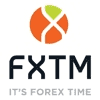By: ForexTime.com
Since the financial market meltdown in 2008, a raft of global regulatory activity has emerged that aims to make the markets more stable, and force financial services firms to operate more transparently.
MiFID II (Markets in Financial Instruments Directive) is just one initiative that was rolled out to create a better regulatory framework. It came into effect in January 2018. MiFID II builds on regulation that was first put in place in 2007, when it sought to make investing more transparent for both retail and institutional investors, particularly with reference to standardised regulatory disclosures. At its core is the requirement for all financial institutions to disclose detailed costs, charges and fees before a client commits to a product or service. In addition, companies now have to adhere to appropriate licensing requirements – including firms that offer commodities, currencies, credit products and their derivatives. There are also stricter policies in place to protect client funds.
Recognising the importance of regulatory compliance for its customers, leading global forex broker FXTM applied for, and was awarded, an FCA licence.
Martin Couper, a director at FXTM, says, “In this stricter regulatory environment, leading companies need to acquire relevant licensing in order to reassure clients that they are dealing with a fully regulated broker. We are regulated in multiple jurisdictions, but the UK licence has particular gravitas as the FCA framework is respected around the world.”
Securing the appropriate licensing is important considering the ongoing uncertainty around Brexit – in particular, the issue of passporting rights between the EU and UK. “We applied for the licence even before the outcome of Brexit was known, because we wanted to ensure that the services we provide to our clients remained consistent and uninterrupted. How international companies will operate post-Brexit is unclear, but applying for and being awarded the FCA licence means that it’s business as usual for FXTM’s clients,” says Couper.
Currently, the FCA has over 56,000 companies and 125,000 approved persons under its banner. As a collective, the industries regulated by the FCA contribute around 12% to the UK gross domestic product.
The FCA works closely with other European regulatory bodies to impose financial initiatives like MiFID II and GDPR (General Data Protection Regulation). Recently the FCA has been working on a set of regulations pertaining to CFDs (Contracts for Difference) and Binary Options in conjunction with ESMA, the European Securities and Markets Authority. Close collaboration with European partners ensures that the regulators have a consistent and united front.
Couper again: “FXTM is regulated in a number of jurisdictions, including Cyprus under CySec and South Africa under the FSB. The Financial Conduct Authority (FCA) licence complements FXTM’s existing operations in Cyprus and other countries, providing broader infrastructure and access to a wider market.”
As a brand, FXTM documented exceptional growth over the last year. Its client base grew by 77% year-on-year in 2017, while active clients grew by 64% in the same period. This growth can be attributed to its comprehensive education programme, an irrepressibly client-centric approach, and a reputation as one of the most trusted brokers in the forex industry.
“Education is at the core of our value proposition. We have a firm belief that an educated client is our best client, and to this end we spend a significant amount of our resources on training traders across the globe. We look forward to providing our UK traders with the same standard of services and education as our existing global clients. We are thrilled to have qualified for the FCA licence and are looking forward to operating in the UK,” says Couper.
